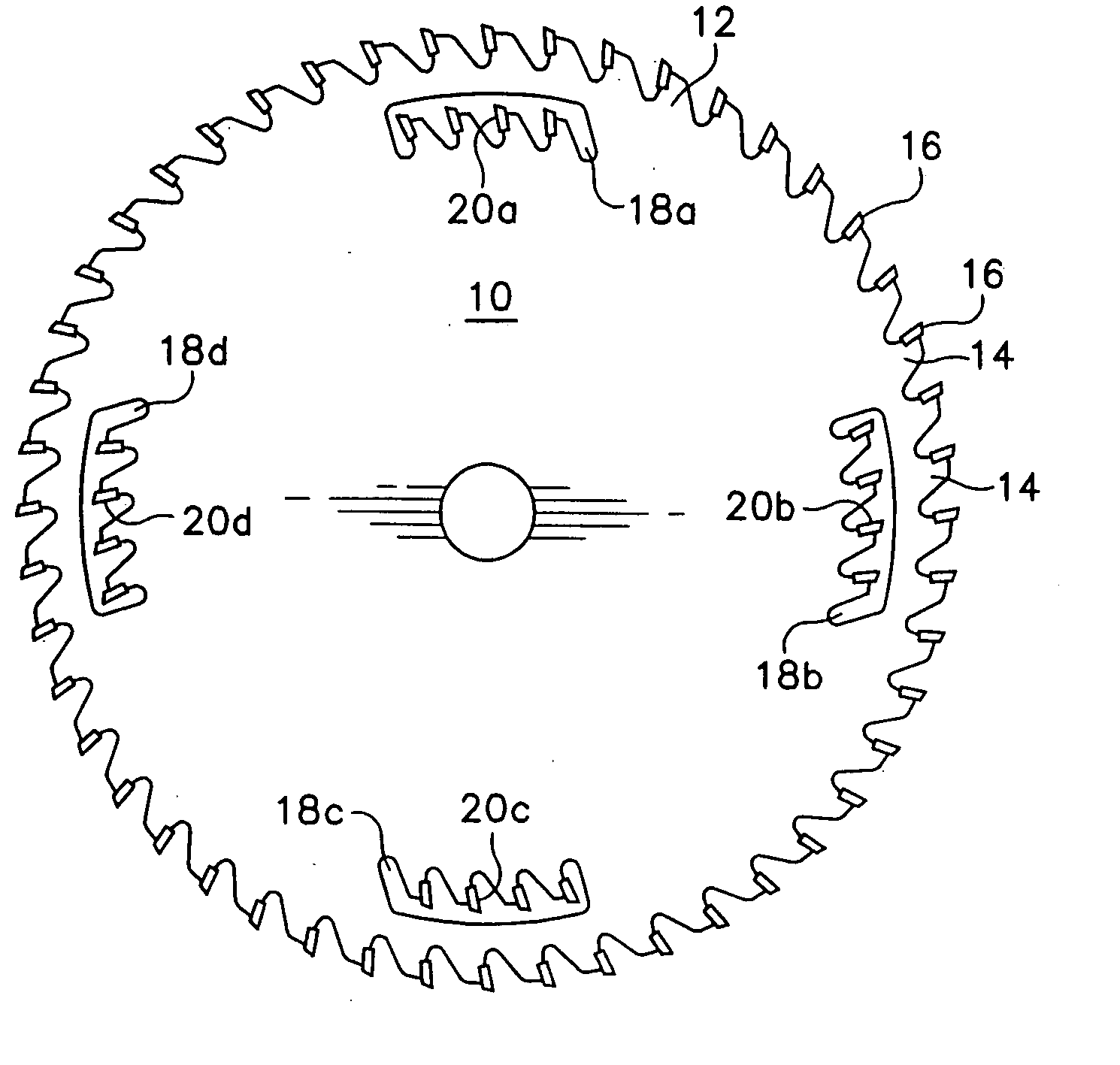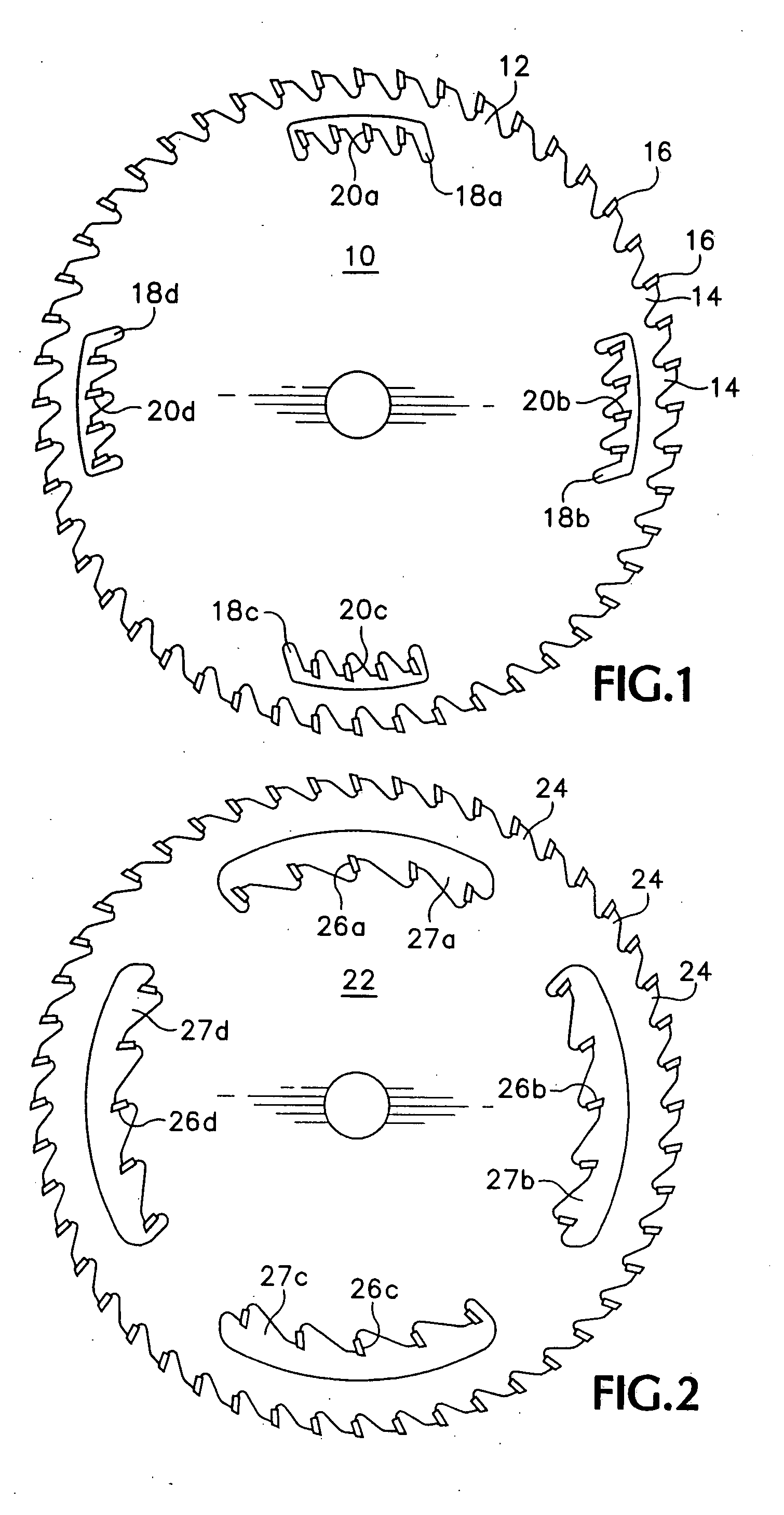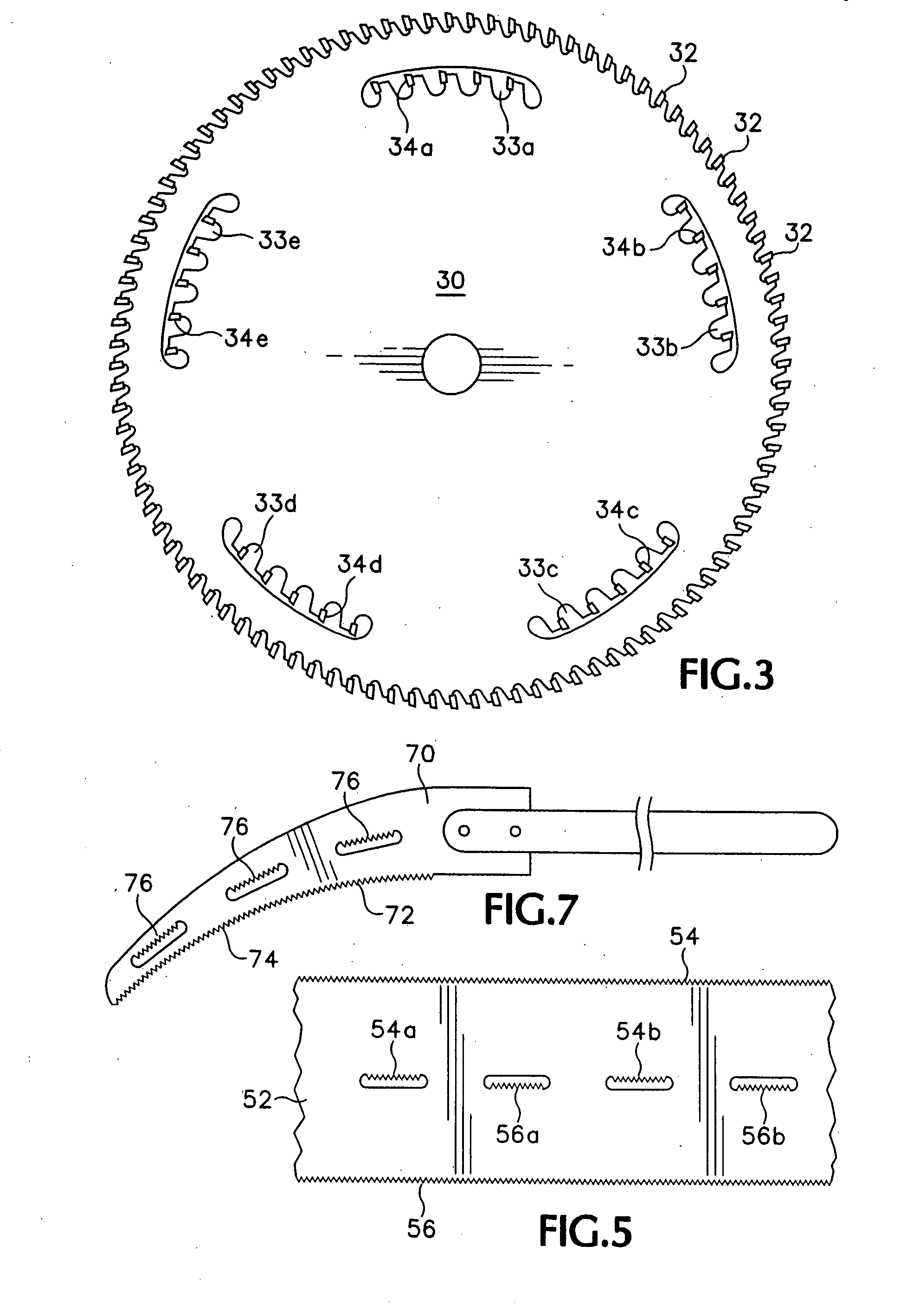Saw blade with multiple interior secondary saw teeth
a saw tooth tip and blade technology, applied in the field of saw blades, can solve the problems of chip lodgement in the kerf, heat and possibly vibration, and breakage of the carbide saw tooth tip of the saw tooth
- Summary
- Abstract
- Description
- Claims
- Application Information
AI Technical Summary
Benefits of technology
Problems solved by technology
Method used
Image
Examples
Embodiment Construction
[0020] Referring to FIG. 1, a circular saw blade 10 has an outer perimeter 12. Distributed about the periphery of the outer perimeter are a number of saw blade teeth 14. Each of the teeth 14 have carbide tips 16. The blade 10 is a planar piece of metal and includes arcuate cutout portions 18a, 18b, 18c and 18d spaced 90° apart radially about an inner circumference of the blade 10 concentric with the outer perimeter 12. Each of the cutout portions 18a, 18b, 18c and 18d have a set of secondary teeth 20a, 20b, 20c and 20d respectively. Each of the sets of secondary teeth 20a, 20b, 20c and 20d have carbide tips, essentially the same as carbide tips 16 of the saw blade teeth 14. Each set of secondary teeth 20a, 20b, 20c and 20d consist of four teeth, and the spacing between the teeth in each secondary set of teeth is approximately the same as the spacing between the teeth 14 along the outer perimeter 12 of the blade 10.
[0021] The secondary cutting teeth 20a, 20b, 20c and 20d help the ou...
PUM
| Property | Measurement | Unit |
|---|---|---|
| radius | aaaaa | aaaaa |
| distance | aaaaa | aaaaa |
| speeds | aaaaa | aaaaa |
Abstract
Description
Claims
Application Information
 Login to View More
Login to View More - R&D
- Intellectual Property
- Life Sciences
- Materials
- Tech Scout
- Unparalleled Data Quality
- Higher Quality Content
- 60% Fewer Hallucinations
Browse by: Latest US Patents, China's latest patents, Technical Efficacy Thesaurus, Application Domain, Technology Topic, Popular Technical Reports.
© 2025 PatSnap. All rights reserved.Legal|Privacy policy|Modern Slavery Act Transparency Statement|Sitemap|About US| Contact US: help@patsnap.com



